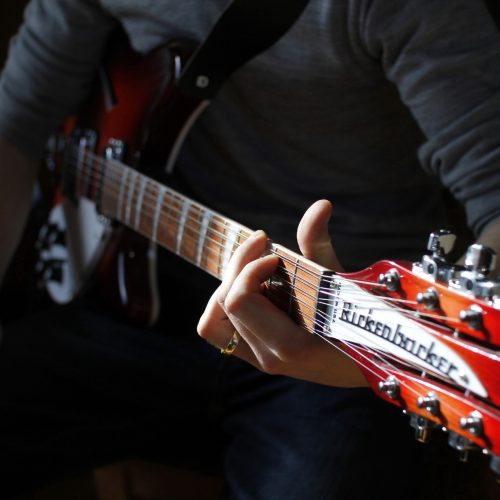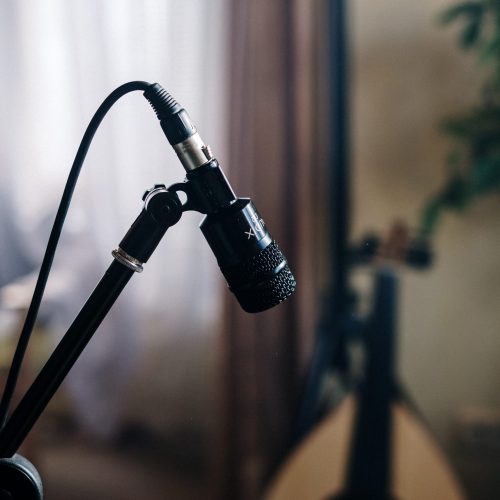How Lyrics Enhance Reading and Writing Skills
In a world where literacy is crucial for success, innovative methods to enhance reading and writing skills are continually sought after. Among the myriad of unconventional tools, hip hop music stands out as a uniquely potent educational ally. This blog post explores how the lyrical content of hip hop can be instrumental in teaching basic writing skills and improving overall literacy, emphasizing how to improve writing skills through music literacy.
The Power of Lyrics
The Connection Between Hip Hop and Literacy
Hip hop, a genre rich with complex lyrics and rhythmic beats, offers more than just entertainment. Its roots in storytelling and verbal prowess make it an ideal medium for enhancing literacy in music. Educational researchers have found that the narrative techniques used in hip hop lyrics can help students develop their ability to decode text, infer meanings, and analyze themes—key components of both reading and writing proficiency.
Moreover, hip hop music often incorporates a diverse vocabulary and a variety of literary devices such as metaphor, simile, and personification. Engaging with these elements can encourage students to explore new ways of understanding and using language, thereby improving their basic writing skills. This exposure also helps bridge the gap between the colloquial language used by students and the academic language required in educational settings.
How Hip Hop Enhances Reading Skills
Enhancing Writing Skills Through Lyric Analysis
For students and educators focusing on how to improve writing skills, hip hop offers a practical and culturally relevant toolkit. By analyzing the lyrics of hip hop songs, students engage in critical thinking and develop their analytical writing skills. This method involves breaking down complex lyrics to understand their themes and the rhetorical strategies employed by artists like the Rat King band.
Such analysis helps in understanding the construction of arguments and the persuasive techniques used in writing, which are key components of basic writing skills. Furthermore, by writing about their interpretations and reactions to hip hop lyrics, students practice articulating their thoughts and opinions clearly and coherently, thereby learning writing skills that are essential in academic and professional settings.
Music Literacy Through Hip Hop
Music literacy encompasses more than just reading notes on a page; it involves understanding the various elements that make up a piece of music, including rhythm, tempo, and lyrics. Hip hop, with its complex rhythms and rhymes, provides a practical framework for enhancing music literacy. Students learn to identify patterns, anticipate beats, and understand the structural components of songs, which are critical skills in both music and linguistic literacy.
The integration of hip hop into literacy education does not just enhance reading and writing skills but also introduces students to the broader cultural and historical context of the genre. This holistic approach to literacy can foster a deeper appreciation of both the artistic and societal functions of hip hop, enriching students’ educational experiences.
Practical Applications in the Classroom
Integrating hip hop into the curriculum can be done through several practical exercises that focus on both reading and writing. For instance, teachers can use lyrics from the Rat King band to create lessons that focus on vocabulary development, understanding figurative language, and identifying thematic elements. Students could be tasked with rewriting a song’s chorus to reflect a different perspective or create a set of verses that incorporate specific literary devices.
Additionally, classroom discussions about the meaning behind certain songs can enhance verbal literacy and critical thinking skills. For example, analyzing a track by the Rat King band could lead to discussions about urban life, economic disparities, or personal resilience, all while drawing direct connections to literary concepts like theme, tone, and voice.
Conclusion
The use of hip hop in educational settings offers a vibrant, engaging, and culturally relevant pathway to enhance literacy skills. By connecting music literacy to traditional reading and writing practices, educators can tap into a dynamic resource that resonates with many students, particularly those who might not be reached through conventional teaching methods. As we continue to explore and understand the potential of music in education, hip hop stands out as a powerful tool in the quest to improve literacy, making learning a truly rhythmic and transformative experience.
This exploration of hip hop’s role in literacy not only highlights its practical benefits in teaching basic writing skills but also underscores its cultural significance, providing students with a medium that is both educational and deeply influential.






